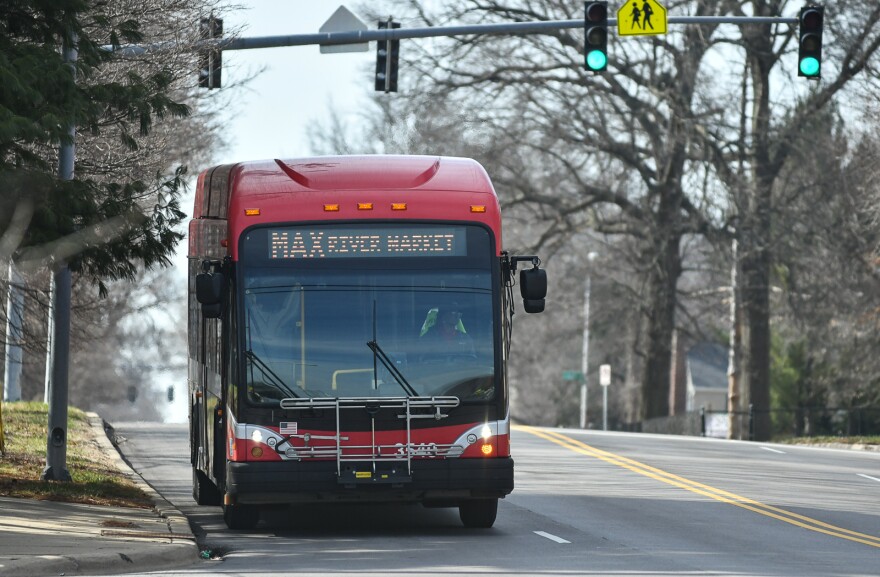More than 650,000 people are expected to visit Kansas City next year for the World Cup matches. Getting those people around won’t be easy.
KC 2026, the group that’s planning the event, said at a news conference Wednesday that transportation is a major focus. CEO Pam Kramer said KC 2026 hopes to build a regional transit network that will get fans where they want to be quickly — and also show residents what transit could look like in the metro.
“It's a great opportunity to provide safe, reliable, convenient transportation and get them thinking about what that might look like after the World Cup,” Kramer said.
FIFA, the governing body for the World Cup, requires host cities to provide transportation to the airport, stadium and organized fan events. To do that, KC 2026 leased 200 buses for the event.
The group also looks to expand public transportation that’s already provided in the metro and make it faster and more reliable. KC 2026 formed a transportation task force that includes Johnson and Wyandotte counties in Kansas; Kansas City, Missouri; The Kansas City Streetcar Authority and the Kansas City Area Transportation Authority.

KCATA faces a funding cliff that prevents it from adding additional drivers and buses. Frank White III, CEO of the agency, said it will focus on day-to-day operations but seeks more funding to add more service.
“It's a regional event, so we want to make sure that we get to Fan Fest,” White said. “But at the same time, they don’t have to wait on another bus to get to work or church.”
Chuck Ferguson, chief operations officer of KCATA, said the success of transportation and KCATA’s performance during the World Cup may allow the agency to work with municipalities across the metro to add routes and rapid transit.
“We absolutely want to leave a legacy from this event where people can say, ‘Wow, that was a great system,’” Ferguson said. “Whether it's additional airport service or additional east-west service.”
Lawmakers from the area have been seeking federal funding to help build out the network. U.S. Sen. Jerry Moran of Kansas reintroduced the Transportation Assistance for Olympic and World Cup Cities Act to help host cities build out their infrastructure before the games. U.S. Rep. Emmanuel Cleaver II of Missouri and U.S. Rep. Sharice Davids of Kansas requested $400 million in funding for transit.

Kramer said the transportation network KC 2026 is building is an opportunity for people who may be curious about the area’s public transportation, but haven’t taken it yet because of infrequent service and a lack of connectivity.
“If you wanted to take public transportation from Olathe to Union Station, it would take you about an hour and 40 minutes,” Kramer said. “The network that we're going to stand up will cut that more than in half. So it will take about 30 minutes on public transit.”
KCATA plans a summit for later this year to discuss what needs to happen to make public transit more accessible and desirable — both now and after the World Cup. White said a transportation development district, regional sales tax and more types of transit are all solutions the agency is considering.
Kramer said the group wants to expand the transportation system to get fans to more parts of the metro, such as Lee’s Summit, the Northland and Lawrence, Kansas, “making sure that the economic impact and the visitor impact is felt beyond the city center.”
“I hope, at the end of this, the headline is, ‘How did the smallest host city become the heart of the World Cup?’” Kramer said.







